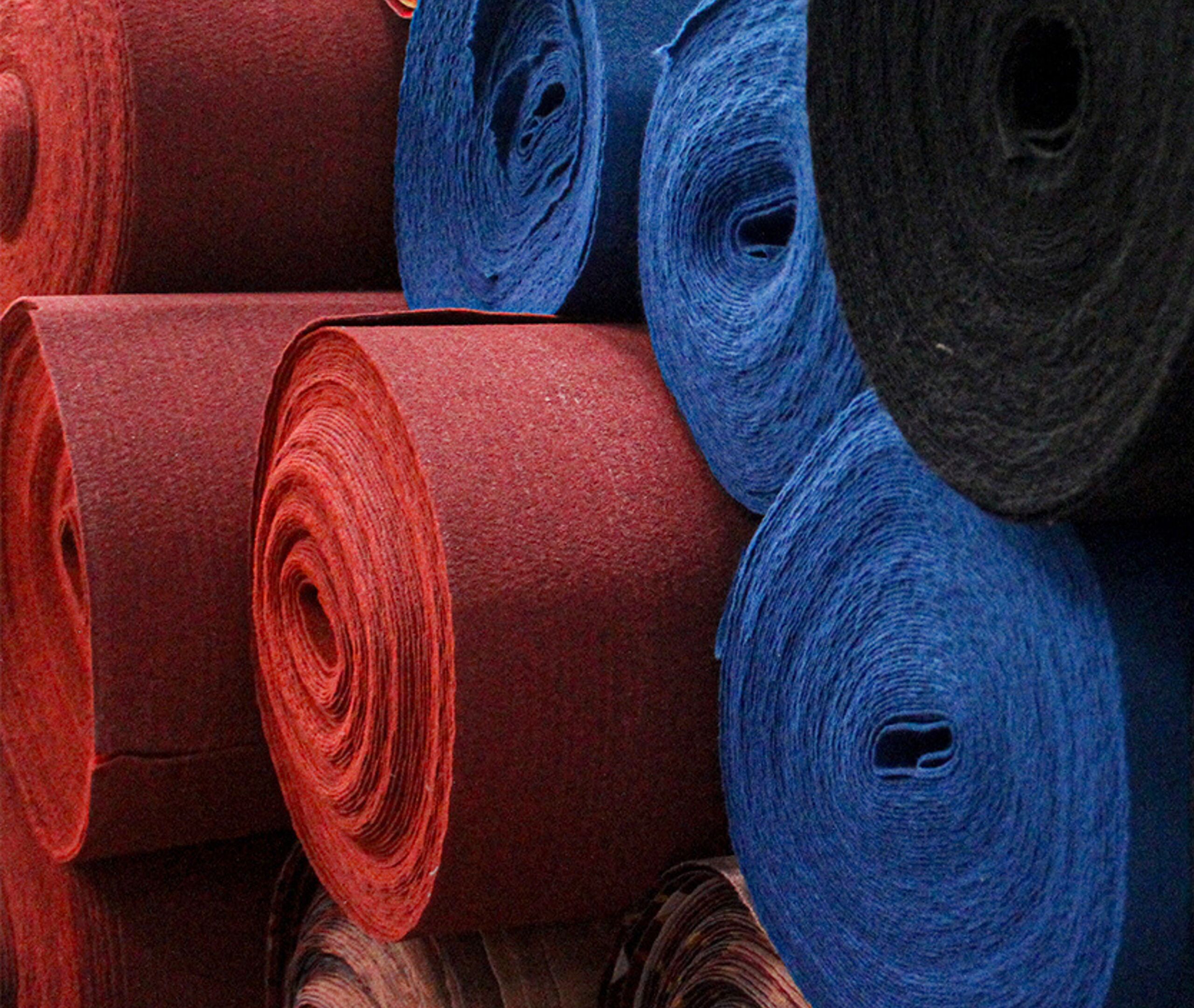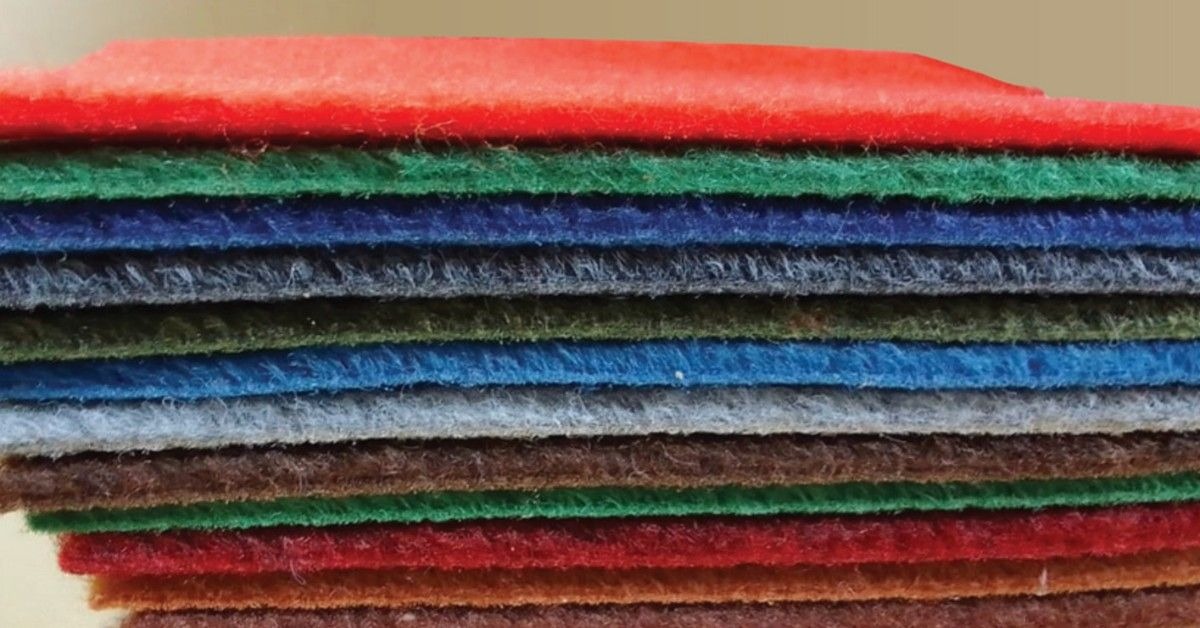

Top 5 Common Challenges only Industrial Felt Can Fix
Industrial felt is a useful material that is often used in factories. It has answers that other things don’t. By filtering and cushioning, industrial felt makes things run more smoothly and keeps workers safer. Industrial felt can easily fix these five big problems.
Challenge 1: Good dust control and filtering
Industrial felt is great at catching dust and small particles, which makes industrial areas safer and cleaner.
How industrial felt keeps small things from falling off
In factories, there is a lot of dust, fibers, and trash that can hurt both machines and workers. The fibers in industrial felt are thick, so they can catch even the smallest particles. Because it lets air flow through but keeps things from getting through, felt is a great material for factory, HVAC, and workshop filtration systems.
Other filters get clogged up more easily than industrial felt. It keeps machines running smoothly by letting air flow through and trapping dust. For example, in the textile industry, felts catch loose fibers before they can damage machines. Felt keeps sawdust from getting into important tools in woodworking shops.
Benefits for factories and workshops
1. Improves air quality for workers
2. Reduces the cost of upkeep and cleaning
3. Lowers the chance that machines will break down
4. Reminds people to follow safety rules
5. Makes work more efficient
Challenge 2: Lessening vibration and noise
Industrial felt absorbs vibrations and lowers noise levels, which makes machines run better and makes workers more comfortable.
What felt does to tools and machines
Industrial machines often make noise and shake things up. This can be bad for both workers and the machines themselves. Felt is a substance that makes noise less loud.
When put between machine parts, it stops resonance and absorbs vibrations, keeping delicate parts safe and stops damage from happening over time.
Conveyor belts, presses, and stamping machines all make vibrations that happen over and over again. Adding layers or pads of felt between moving parts makes the machine quieter and lasts longer.
Advantages for factories and workshops
1. Making work safer and more pleasant
2. Lessens noise pollution in places where things are made
3. Lessens the damage that constant vibration does to machines. Also, makes workers less tired from being around noise.
4. Helps people finish more tasks at work
5. Keeps machines running longer
Challenge 3: Absorbing and cushioning impact
Industrial felt is a good way to keep delicate things and machines safe from harm.
How industrial felt keeps things that are easy to break safe
You need to be extra careful when you move fragile things. Such as glass, electronics, or medical equipment.
As industrial felt protects these things by cushioning them so they don’t get hurt. Its soft but thick structure absorbs shocks and keeps scratches and cracks from happening.
For instance, electronic parts that are packaged with felt layers get to their destination safely and don’t add much weight to the package. Also, wrapping furniture and appliances in felt sheets can help protect them from damage when they are loaded and unloaded.
Benefits for factories and workshops
1. Keeps things from breaking or getting scratched while they are being shipped
2. Lessens the vibration of machines that move
3. Helps people safely handle heavy or fragile equipment
4. Offers a cheap way to add padding
5. Makes sure that the quality of the product gets to the customer without damage
Challenge 4: Heat and keeping things warm
Felt is a natural insulator that keeps both employees and machines safe from high temperatures.
Industrial felt was a cheap way to keep heat in
A lot of industrial processes make things very hot. Metal parts, ovens, and heat exchangers can be dangerous for both workers and equipment. Because industrial felt doesn’t let heat pass through it, it’s great for use in high-temperature situations.
You can use felt around machines or hot surfaces to keep them from getting too hot. Felt is more flexible, easier to shape, and cheaper than metal or synthetic insulators. It adds a layer of protection without making things too heavy or bulky.
Benefits for factories and workshops
1. Uses in places with high temperatures
2. Keeps machines safe from heat damage
3. Keeps the workplace safe for workers
4. Lessens the amount of energy lost in processes that use a lot of heat
5. Reduces the cost of maintaining thermal equipment
6. Gives insulation that lasts a long time without needing to be replaced
Challenge 5: Taking in moisture and liquids
Industrial felt is good at soaking up liquids, which keeps floors dry and workplaces safe.
Controlling spills and leaks in industrial processes
Spills, leaks, and condensation are common problems in factories. Wet floors can be dangerous because they can make people fall or break things. Industrial felt quickly and effectively absorbs liquids. Because it has holes in it, it can hold water and other liquids, which lowers the risk of accidents and damage.
For example, oil leaks are a common problem in auto shops. Felt pads under machines or in storage areas soak up oil, which keeps people from slipping. Felt also helps keep food processing units clean by controlling water and other liquid waste.
Benefits for factories and workshops
Reduces the number of slips and falls
1. Keeps moisture from getting on equipment and causing it to rust
2. Helps keep the floors of factories clean and neat
3. Helps work go more smoothly and quickly
4. Provides a long-lasting and reusable solution for absorption
Why should you buy industrial felts from Supreme Geotech?
1. Materials of high quality
2. Supreme Geotech makes felts that are thick, durable, and meet industrial standards. They work well even when things get tough, and they last a long time.
3. Customized answers for many different fields
4. Felt comes in different sizes, thicknesses, and densities. Companies can choose the best way to filter, cushion, insulate, or control vibrations.
5. Long-lasting performance and dependability
6. Reduces the costs of upkeep and replacement
7. Ensures that all applications get the same results
8. For a long time, big businesses have trusted us.
Final thoughts
In the end, industrial felt is more than just a material. They are a useful tool for solving problems that keep coming up in business.
It also filters and absorbs impacts, it keeps things safe, efficient, and reliable.
When you buy Supreme Geotech’s industrial felts, you can be sure that they are the best quality. Quality that will last a long time, and will work well in your industry.
Factories, workshops, and industrial units use Supreme Geotech’s industrial felts as they are of high-quality and can be used in many ways.
FAQs:
What kinds of companies use industrial felt?
Many industries, such as manufacturing, automotive, packaging, electronics, and textiles, use industrial felt for filtering, cushioning, insulation, and controlling vibrations.
Can using industrial felt make it cheaper to keep machines running?
Yes. Felt cuts down on dust, vibration, and heat, which makes machines last longer and costs less to fix.
In what ways does industrial felt make the workplace safer?
It absorbs liquids and dust, lowers noise and vibration, and cushions equipment to keep people from getting hurt.
Can you change the Supreme Geotech felts?
Yes. There are different thicknesses, densities, and sizes of felts available to meet the needs of different industries.
Can industrial felt be used again?
Many industrial felts are strong and can be used again and again, depending on how they are used and how they are exposed.


